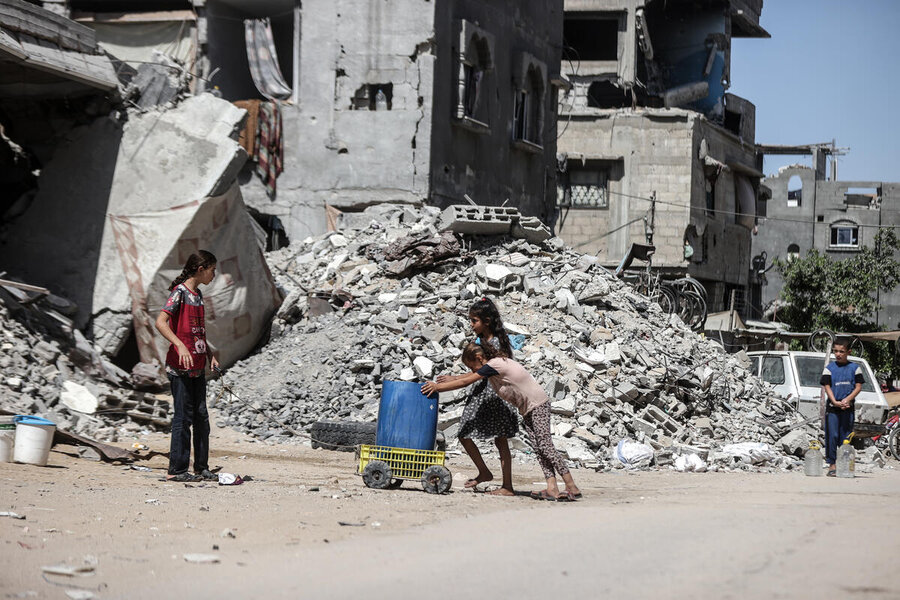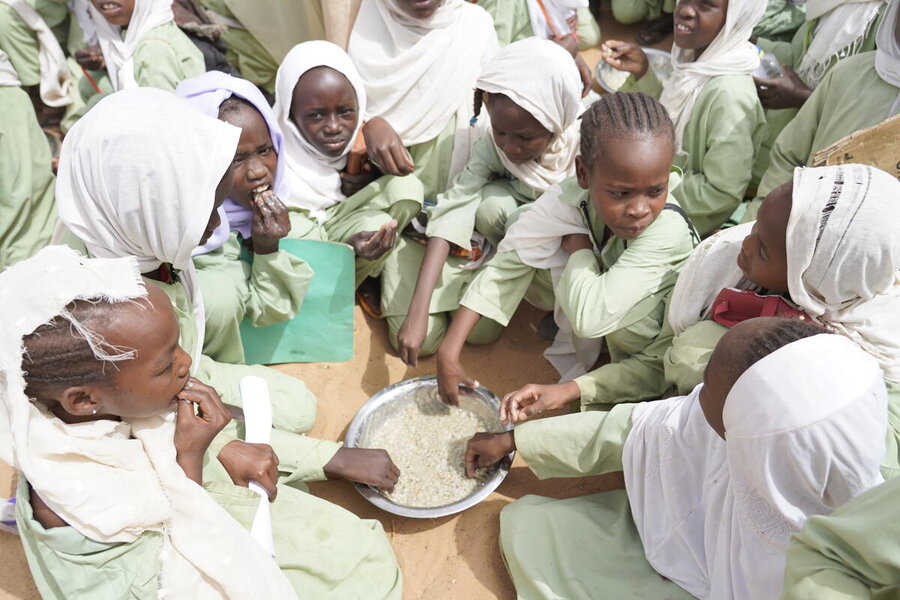
In Gaza, 12-year-old Ahmad has lost nearly a year of schooling, as bombings and airstrikes drove his family from one short-lived shelter to another. Tired, sad and depressed, he studying again - in a tent, as part of a temporary learning initiative.
In her village in Sudan's West Darfur region, Samar once eagerly attended class, especially math, her favorite. Today, she lives in a teeming refugee site just across the border in Chad, fetching water and milling sorghum so her family can survive.
In Haiti's capital Port-au-Prince, where armed group violence has uprooted hundreds of thousands of people, Sherline and her six children count among the many turning one-time classrooms into shelters. Homeless and single since assailants torched her neighborhood and killed her husband, she worries about her children's future. "They haven't been to school in three years," she says.
Worldwide, conflict and instability are robbing millions of children of an education - and, for the hungriest in the countries where we operate, of hearty, nutrition-packed World Food Programme (WFP) meals.

But the scars of violence stretch further and deeper than lost learning, WFP and other experts say. Schools provide children and communities with a sense of normalcy. They can help young students process the trauma of conflict, and prevent them from joining armed groups or getting attacked. And because they can gather children and parents from different places, backgrounds and ethnic groups, schools can also help build peace.
"When conflicts and disasters happen, school children are often the most forgotten group - the focus tends to be on life saving," says Edna Kalaluka, WFP's regional school feeding advisor for Eastern Africa, who previously served in our Sudan office. "Education is one big investment that parents hope for. It helps kids to feel normal, to interact with their peers, to laugh, to share memories."
In four conflict-torn places where we operate - Gaza, Sudan, Haiti and Ukraine - we spoke with children, parents, teachers and our own experts about what it means to lose out on school. We are withholding many last names for safety reasons.






